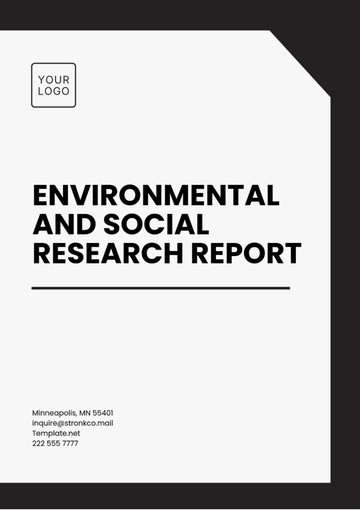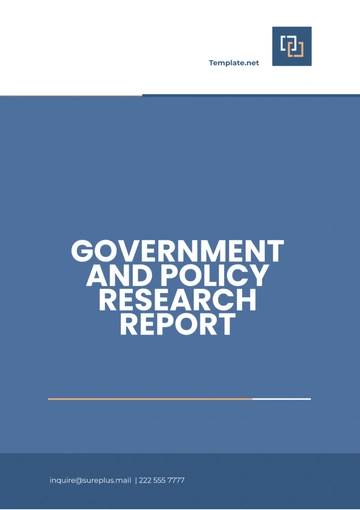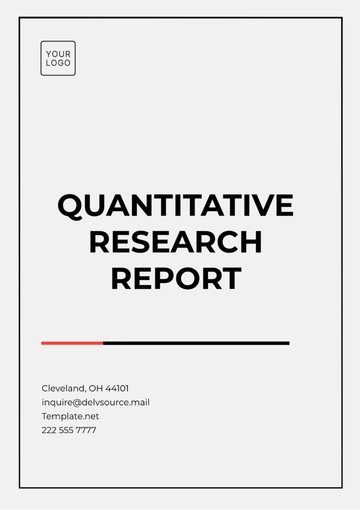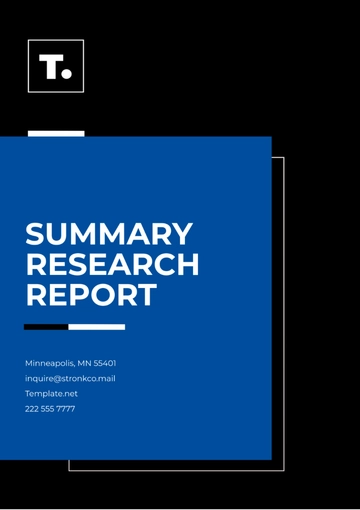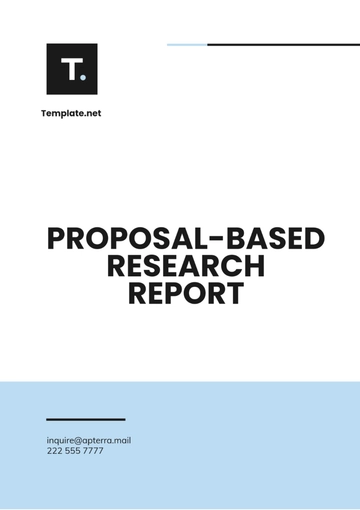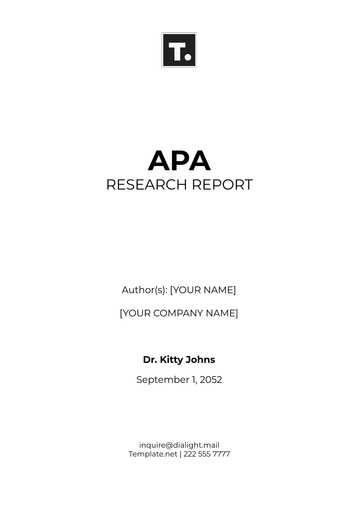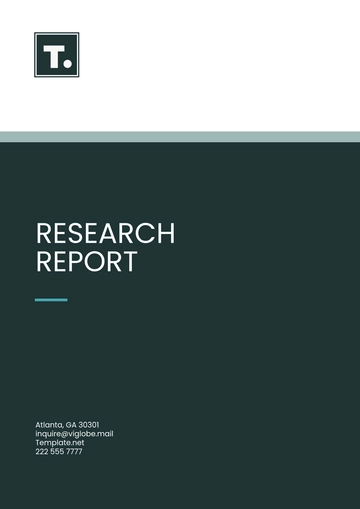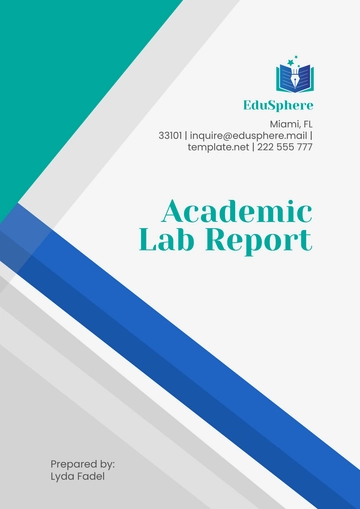Research Methodology Report
Author(s): [Your Name], [Your Company Name]
Date: January 1, 2051
I. Executive Summary
This research methodology report outlines the approach used by [Your Company Name] to study the effects of climate change on marine life. Climate change has had a profound impact on ocean temperatures, acidification, and biodiversity.
This report offers a comprehensive overview of the research methods employed to collect and analyze data regarding these impacts. By understanding the changes occurring within marine ecosystems, we can better inform conservation strategies and policy decisions.
II. Introduction
A. Background
The accelerated pace of climate change poses significant threats to marine ecosystems. Rising sea temperatures, ocean acidification, and changing salinities are altering the habitats and behaviors of marine species. This study focuses on understanding these effects in greater detail.
B. Objectives
To analyze temperature changes in various marine ecosystems.
To assess the impact of ocean acidification on marine biodiversity.
To evaluate changes in species distribution and behavior.
III. Methodology
A. Research Design
This research employs a mixed-methods approach, combining quantitative data collection with qualitative observations to provide a robust understanding of the effects of climate change on marine life.
B. Data Collection Methods
Field Surveys: Regular field surveys were conducted to measure water temperatures, pH levels, and salinity.
Remote Sensing: The use of satellite imagery to monitor changes in sea surface temperatures and chlorophyll concentrations.
Laboratory Experiments: Controlled experiments were conducted to observe the impact of acidified water on different marine species.
C. Data Analysis Techniques
Data Type | Analysis Method |
|---|
Temperature Data | Statistical regression analysis to identify trends and anomalies. |
pH Levels | Comparative analysis over different time periods. |
Species Observations | Qualitative thematic analysis to identify behavioral changes. |
IV. Results
A. Findings
The data indicates a significant rise in sea surface temperatures over the past few decades, leading to changes in marine biodiversity. Ocean acidification has been observed to disrupt calcium carbonate production in marine organisms, affecting species such as corals and shellfish.
B. Discussion
The findings underscore the urgent need for mitigation strategies to combat the adverse effects of climate change on marine life. Adaptive measures and policy changes are crucial to preserving marine biodiversity and ecosystem health.
V. Conclusion
This study offers compelling evidence of the detrimental effects of climate change on marine environments. Continued research and proactive intervention are essential to safeguard marine ecosystems for future generations.
VI. Contact Information
Name: [Your Name]
Email: [Your Email]
Company Name: [Your Company Name]
Phone Number: [Your Company Number]
Report Templates @ Template.net








